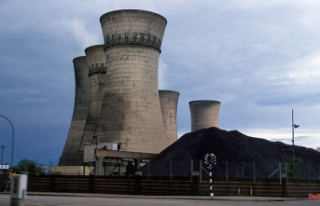The Kremlin's troops are repeatedly accused of losing their will to fight in the face of heavy losses in Ukraine. Now the Russian military wants to remedy the situation. It publishes a price list detailing amounts for kills of planes and tanks.
The Russian military is trying to motivate recruits with kill bonuses and bounties in the war against Ukraine. The army channel "Zvezda" published a price list on its Telegram channel. According to this, the shooting down of a Ukrainian plane is compensated with the equivalent of 5,000 euros, a helicopter with a little more than 3,200 euros, and a battle tank with a good 1,600 euros. "In addition, payments to soldiers who have excelled in the destruction of fighters and the fulfillment of other tasks are possible - up to 100,000 rubles" (a good 1,600 euros), it says.
The bonuses for shooting down drones, armored personnel carriers, artillery pieces and anti-aircraft systems are more modest. Here, the Moscow military leadership promises the recruits the equivalent of 800 euros.
The Russian leadership has also promised the soldiers high salaries and financial security in the event of injury or death - in this case for the bereaved. Accordingly, the gross monthly minimum salary is 3100 euros. Injured people are to receive a severance payment of around 50,000 euros, and in the event of death Moscow wants to pay the relatives around 80,000 euros. However, numerous complaints have surfaced in social networks and media over the past few weeks and months that promised payments have not been made.
Meanwhile, reports are piling up that the combat morale of Russian troops leaves more and more to be desired. According to British estimates, the upcoming winter will also have a significant impact on the fighting in Ukraine. "Changes in daylight hours, temperature and weather present unique challenges for combatants," the Ministry of Defense said in a statement. "Any decisions made by the Russian General Staff will depend in part on the onset of winter."
Because daylight hours are significantly decreasing, there will be fewer offensives and more static defensive lines. The winter conditions, with more rain and strong winds and snowfall, led to cold injuries and would pose additional challenges to the already low morale of the Russian armed forces, the ministry said. They also posed problems for the maintenance of the equipment. "Basic exercises such as cleaning weapons must be adapted to the circumstances, and the risk of weapon malfunctions increases," said London. At the same time, the authority emphasized that Ukrainian soldiers were also affected by the conditions.












